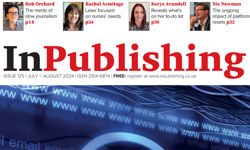
The biggest threat to customer publishing today is the same one that’s haunted us for a couple of decades: that the big platforms and social media outfits will outmuscle everyone. They’ll hoover up all the best data, offer obscenely effective targeting, and will themselves become the communities of choice. There are already huge, lively communities on Reddit dedicated to particular professional activities and self-started Facebook groups offer fantastic peer-to-peer knowledge in specific professional disciplines.
But the biggest opportunity is also tied up in that threat. It was well expressed by Professor Niall Ferguson: “I doubt very much that online communities are a very good substitute for trade associations. Facebook and its ilk create social networks that are huge but weak.”
This isn’t to say that customer publishers can be complacent about their audiences; they absolutely can’t be. They have to get obsessive about data and with finding new ways and places to connect with their clients’ communities.
But equally, they shouldn’t be shy about their innate advantages. Take one of our particular client bases: professional membership organisations. Around the world, professional bodies are highly regarded. Upcoming engineers, surgeons, biologists, consultants value their professional credentials; the qualifications and post-nominals are seen as a passport to personal and career development.
And in the UK too, membership is also seen as an important badge of social mobility and advancement. Indeed, there’s a name for the special kind of relationship that can strike up between an individual and the membership body to which they belong. It’s ‘the membership economy’. The phrase was coined by Robbie Kellman Baxter. Her most recent book, The Forever Transaction, explores a similar theme – that all organisations try to build an emotional connection with their customers that goes beyond the transaction; and that membership organisations have a distinct advantage here in that ‘members’ sign up with a view to a long-term relationship.
And in this heady mix of emotional connection, personal aspiration and social advancement, the printed publication can also play quite a powerful role. For we only give over our home or work address with care, and only to those organisations that, we feel, will respect us and our privacy. We allow them to send us the ‘gift’ of a publication. And then we receive it as a reward, with pleasure and gratitude.
So, sure, there are innumerable challenges facing the customer publishing sector. It’s hard, perhaps impossible, to compete with the technology behemoths in terms of data. But they’ll find it equally difficult, if not impossible, to compete on the level of emotional connection. And that’s where customer publishers should be encouraging their own clients to play.
Customer publishers have to get obsessive about data and with finding new ways and places to connect with their clients’ communities.
This article was first published in the Publishing Partners Guide (PPG) 2022, which is published and distributed by InPublishing. You can register to receive InPublishing magazine here and view the digital edition of the PPG here.










